Building the Most Powerful Links to Boost Your Rankings
Search engine optimisation is an ever-changing field, and there’s a huge amount of hype and misinformation surrounding the subject. This can make it extremely difficult for website operators and promoters to stay up to date with what techniques they should be using to boost their sites’ presence. However, no matter what the current technique du jour is, one underlying fact remains the same: to rank well, your site will need to attract incoming links.
But that’s not the end of the story. The days when building links was purely a numbers game are long gone, and today quality is far more important than quantity. Indeed, having too many links that search engines deem ‘low quality’ can actively harm your rankings. So what makes a good link?
Relevance
Back in the day, a link was a link was a link. No matter what the topic of the linking page, it would provide at least a little ranking boost. Nowadays, this is far from the case. Incoming links are used by the search engines to help define the subject and relevance of your page, so it stands to reason that you’ll want to cultivate links from pages and sites dealing with topics closely related to your own. If a majority of your links are from pages with completely random themes, it’s a signal to the engines that your page lacks focus and is unlikely to be a good match for any particular query.
Traffic
A link on a popular page is worth more than a link from a page that no one ever visits. Not only does a highly trafficked page cast a stronger ranking vote in favour of the sites it links to, but it stands a better chance of sending real, human visitors as well – which, after all, is the ultimate aim.
Natural Anchor Text
Anchor text is the term used for the words contained within the link to your page. It used to be the case that generating thousands of links with identical, keyword-rich anchor text could propel a site to the top of the rankings for more or less any term. That technique no longer works well,and is more likely to see your page buried pages deep in the results for your targeted search term.
Instead, you want to aim for a good spread of anchor text that appears to follow a natural pattern. Most webmasters don’t link using keywords as anchor text, but use either longer phrases containing related words, the website’s title or domain, or just neutral anchors such as the ubiquitous ‘click here’. By all means, ask for relevant and descriptive text within any link you arrange to have placed, but don’t go overboard with keywords and always aim to look natural.
Link Context
Links located at the bottom of a page, or on a ‘blogroll’ list at the side, are worth far less than links naturally placed within the main body text of a page. The surrounding content will also contribute to the theme of the link, and pass a little relevancy down the line to your own page. It’s especially important to avoid lonely links that appear on every single page of a site – at best these links will be ignored by the search engines, but at worst they can overwhelm your other stronger links, cancelling out their value, and damaging your rankings considerably.
Bear Co-Citation in Mind
Co-citation is the fancy term for having your link appear alongside others. Even in the search engines’ world, you can be judged by the company you keep: if a page that links to your site also links to another high-quality one, you’ll receive a little credit by association. This effect was widely abused a few years ago and is no longer as valuable, but all else being equal it’s best to have your link appearing alongside other high-quality ones rather than standing alone.
Avoid Link Farms
On the other hand, if your link is only one of many pointing to pages with wide-ranging topics and highly variable quality, then it will be rendered more or less worthless. It’s best to avoid so-called link farms which are pages set up purely to link to others, as well as any other type of page where your link will be lost in a sea of outbound noise.
Mix Up Your Target Pages
Lastly, most sites that attract freely given links will receive a good spread of them across the whole site. The homepage will naturally attract the largest number, but inner pages should receive their fair share as well. If one single page stands out by having a huge number of links pointing to it, while its neighbours have few or none, this will look extremely unnatural and can raise a red flag in the ranking algorithms. The benefit of a link to any single page will spread throughout the site as a whole, so don’t be afraid to build links to your less commercially-important pages.
Despite what the search engines would have you believe, few sites achieve great rankings without a little help, no matter how awesome their content. This is especially the case in topic areas with any level of commercial value. Although the popularity and effectiveness of individual search engine optimisation techniques will always wax and wane over time, links remain a powerful weapon in the rankings battle – so long as you attract the right kind.






